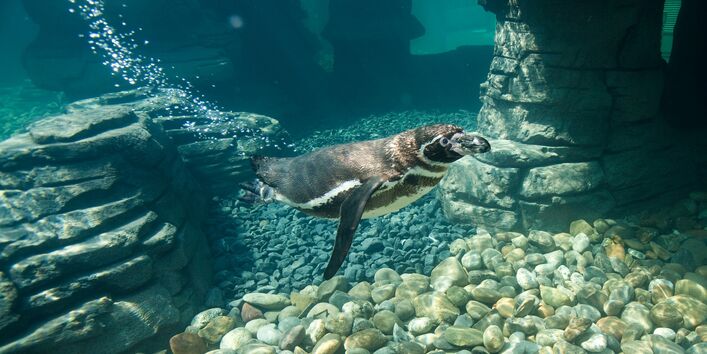How well do penguins hear?
A good deal of research has been done on penguins, for example on their foraging habits or migration patterns. But there has been only one study to date on whether and how good penguins hear – which is surprising because noise is just as much a problem for marine animals as marine litter, only far less known. On behalf of the German Environment Agency (UBA) the Deutsches Meeresmuseum Stralsund has launched a three-year research project on penguin hearing and the effects of underwater noise in Antarctica.
Penguins are border crossers – between the marine and land worlds. Some species can dive to depths of up to 500 metres and are perfectly adapted to life under the water surface, whereas other species spend the vast majority of their lives on land or ice. Many aspects of penguin life have been well researched, but only one study has ever been done on penguin hearing. That study involved three penguins, dates back to 1969 and focuses on the hearing of the black-footed penguin which lives on land. The new project aims to find out how sensitive penguins are to natural and anthropogenic noise, both on land and underwater.
The project involves training penguins at the Odense Zoo (Denmark), the Marine Science Center Rostock and the OZEANEUM Stralsund. Just as in a regular hearing test, the animals learn to signal when they hear a sound onshore and are then rewarded with feeder fish. Next, they accomplish the same task while diving under water. Further project partners include the Museum für Naturkunde in Berlin, which will present the project results with a focus on the impact of underwater noise in Antarctica.
The German Environment Agency is supporting the Hearing in Penguins study with funding from the Federal Ministry for Environment, Nature Conservation and Nuclear Safety (BMU). Penguins, whales and seals in the Antarctic Ocean are protected under the Antarctic Treaty against disturbances from underwater sound and other man-made influences.
